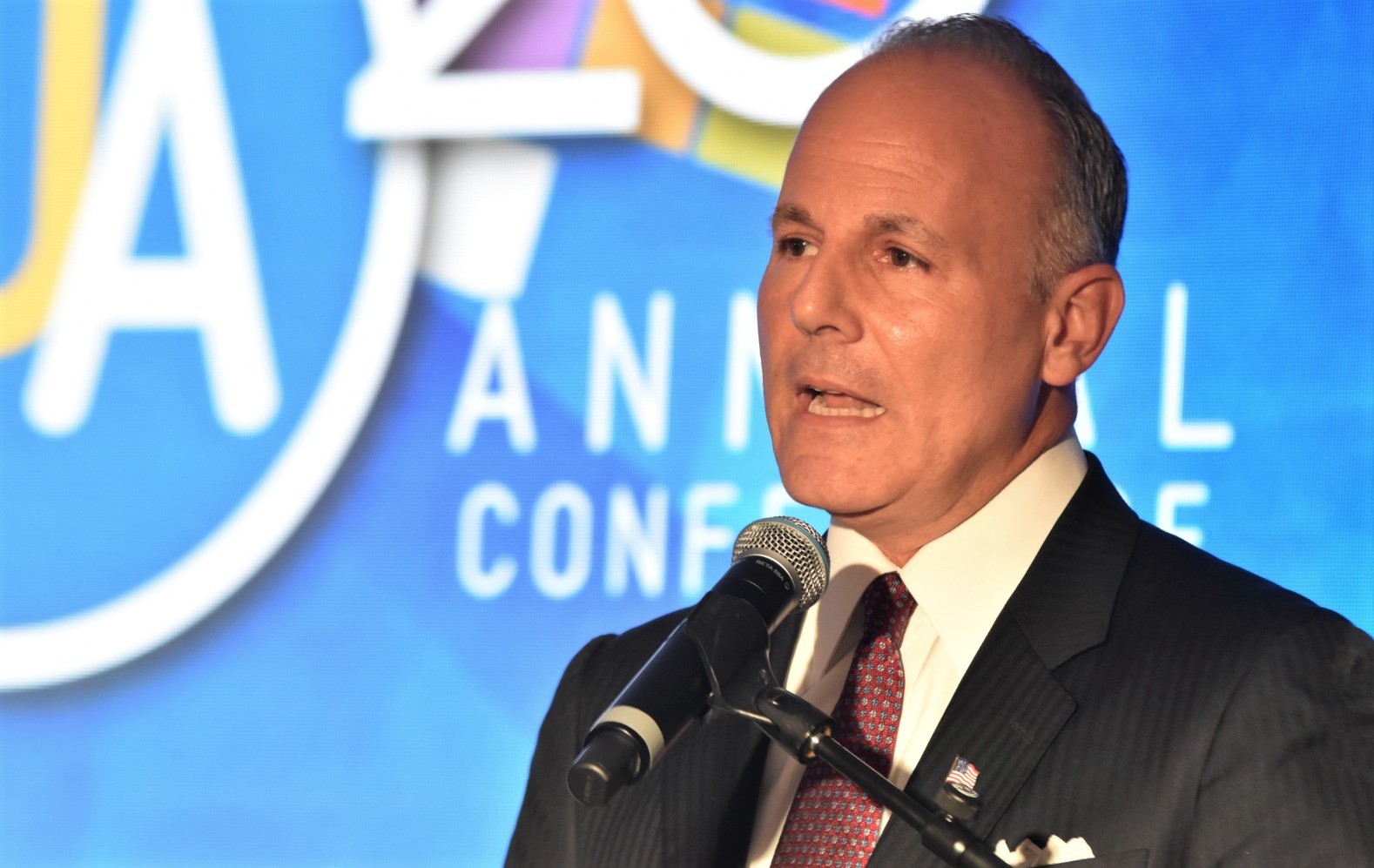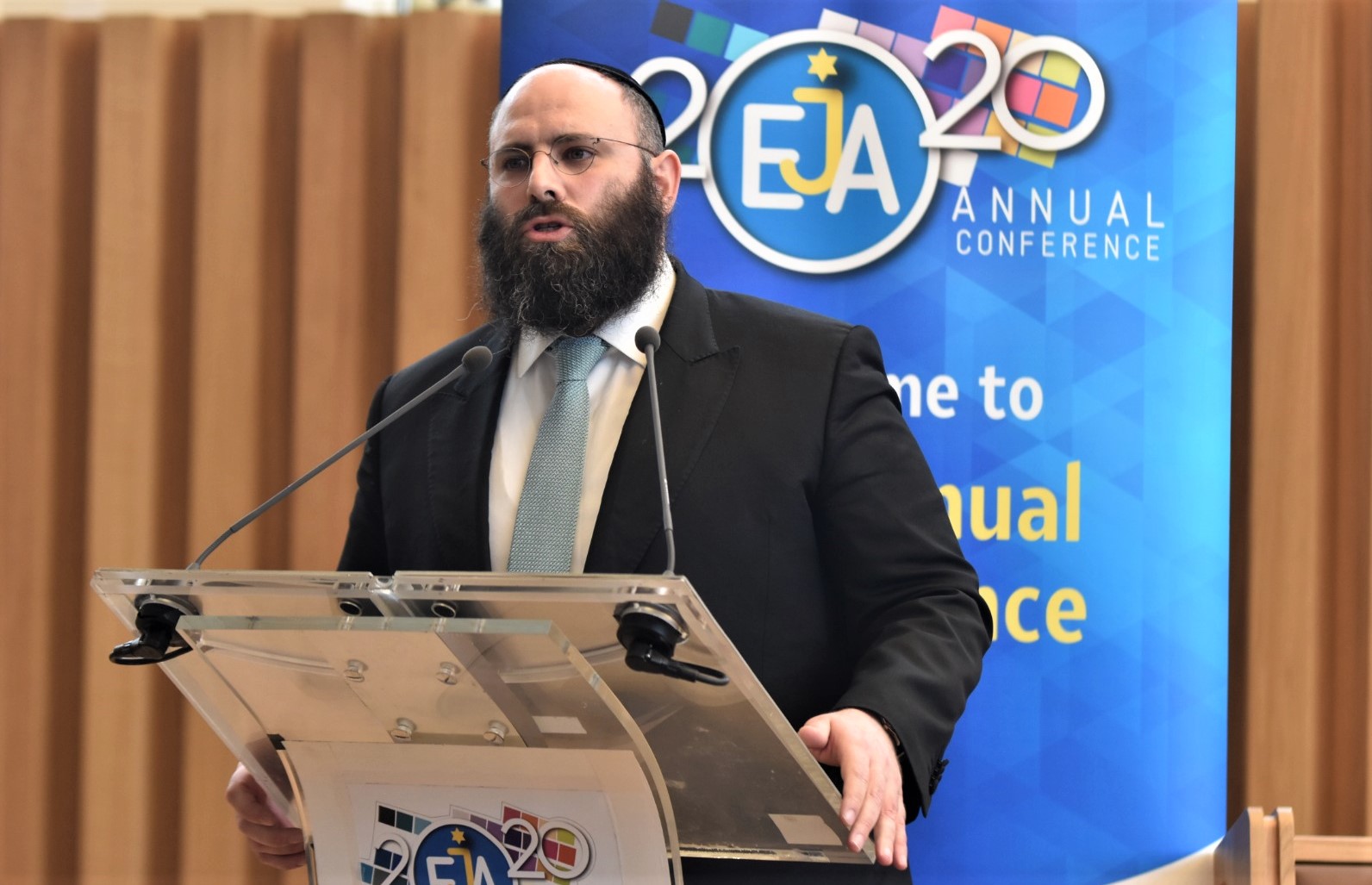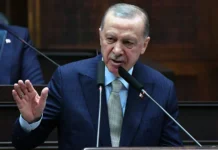Some 250 participants and European leaders gathered in Paris at the European Jewish Association’s (EJA) annual policy conference this week under the topic “Jews in Europe: United for a Better Future.”
The $11 million “European Centre of Judaism” venue, which also serves as a synagogue and community center in the 17th arrondissement (district) of Paris, was newly opened in October 2019, funded in part by the French government.
The conference on Feb. 24-25, titled “Jews in Europe: United for a Better Future,” took place in the context of rising anti-Semitism throughout Europe, with data aggregated by the Action and Protection League (APL) showing increased numbers of anti-Semitic incidents over the past seven years in the United Kingdom, the Netherlands, France and Austria.
Present at the two-day conference were co-organizers Rabbi Menachem Margolin, chairman of the European Jewish Association; Chabad Rabbi Shlomó Köves of Hungary, chairman of APL; and Joël Mergui, president of the Consistoire Central de France.
“If the plan is implemented in Europe, there is no doubt in my mind that the situation will get better and better,” said Margolin, who told journalists that he is optimistic in the Jewish future because he has seen growing interest in Jewish people who are open to learning about their roots.
Köves referred to anti-Semitism as a “high-level security issue.”
The importance of monitoring anti-Semitic and anti-Israel prejudices, he told JNS, is vital.
Quoting a Talmud saying, “Know who you are standing a front of,” Köves noted that “this teaching originally was meant in the spiritual sense in the context of prayer, but it is also meaningful in the profane sense: We should always know who and what we are dealing with and what is the mindset of those who we are trying to persuade.”
Expressing cautious optimism, he added, “We are not alone; we are here with partners from all around Jewish community and the political realm, but we have to take action.”
Mergui praised the conference for bringing the Jewish community and governmental leaders together to “hear the voices of the Jewish community.” Though he lamented the fact that “75 years after the Shoah, anti-Semitism is rising again in all of Europe,” he maintained, “It is reassuring to know that we are not alone.”
Other notable speakers included the Mayor of Paris Anne Hidalgo; UNESCO assistant director-general Stefania Giannini; Italian coordinator against anti-Semitism Milena Santerini; U.K. anti-Semitism adviser Lord John Mann; and Elan Carr, U.S. special envoy to monitor and combat anti-Semitism.
“We cannot be disconnected from the history of anti-Semitism, and we should be very careful of hate speech,” said Hidalgo, who recognized that “there is a new form of anti-Semitism, which is anti-Zionism.”

“It is the responsibility of Paris to revive Jewish history and to defend the values of democracy … attacking [Jews] is an act against humanity and we should unite together [to combat anti-Semitism],” she continued. “The mayors of European countries are standing beside you, because [combating anti-Semitism] is not only a Jewish affair, it’s a European and human affair, so we cannot surrender.”
Giannini, who was appointed as the top official at the United Nations in the field of education, maintained that preventing anti-Semitism is an “immediate security imperative and long-term educational imperative.”
“We have a shared responsibility to speak against and monitor anti-Semitism, strengthen legislation and bolster the role of civil society in denouncing anti-Semitism,” she said, adding that UNESCO is working on reviewing policies, curriculum, textbooks and teachers guides to address intolerance against Muslims and Jews. “We know the stakes are very high, and hate crimes must be punished on and offline.”
Santerini noted that “anti-Semitic discourse has become more accepted,” and “Holocaust denial is a global problem.” She expressed the need to “take action now” to build “a coalition of activism to counter these narratives.”
Mann suggested that urging leaders to sign onto the IHRA definition of anti-Semitism should not end with politicians. “We are demanding and expecting every British football club and university to sign and use the IHRA definition, without exception,” he said. “Additional legislation is being introduced this year to make it illegal for BDS to be implemented in any public institution in the U.K.”
Carr maintained that anti-Semitism must be fought from the far left, ethnic supremacist right and militant Islamic spheres. He presented the top priorities of the U.S. administration, including keeping Jewish communities safe, punishing hate crimes, adopting IHRA, curbing incitement on social media and educating children for “philosemitism.”

Live proudly as Jews throughout the world
On the final day of the conference, Samuel Sandler, the father and grandfather of Toulouse terror attack victims, delivered an emotional account of learning of the tragic murder of his son and two of his children in 2012 by an Islamist terrorist. “My relatives were deported to Auschwitz in 1943, so I always had a fear as a child that I would be killed because I was a Jew, but I told myself, “No, I live in France, where we cannot assassinate young people because they are Jews.”
Following his address, conference participants were encouraged to share their ideas, with one participant encouraging everyone, despite the threat of anti-Semitic attacks, to continue to wear their kipahs in Paris, and continue to live proudly as Jews throughout Europe and the world.
In the final address, Mergui noted that recently, following a series of deadly anti-Semitic attacks in the United States, American delegations often come to France to share their experiences in combating anti-Semitism and hate crimes—something that has beleaguered Paris in recent years. “We really need to come together from the United States and France,” he said.
Though it is a “very dangerous moment in our history, and perhaps we are used to the rise of anti-Semitism in Europe,” he said. “We feel we are not alone.”


























